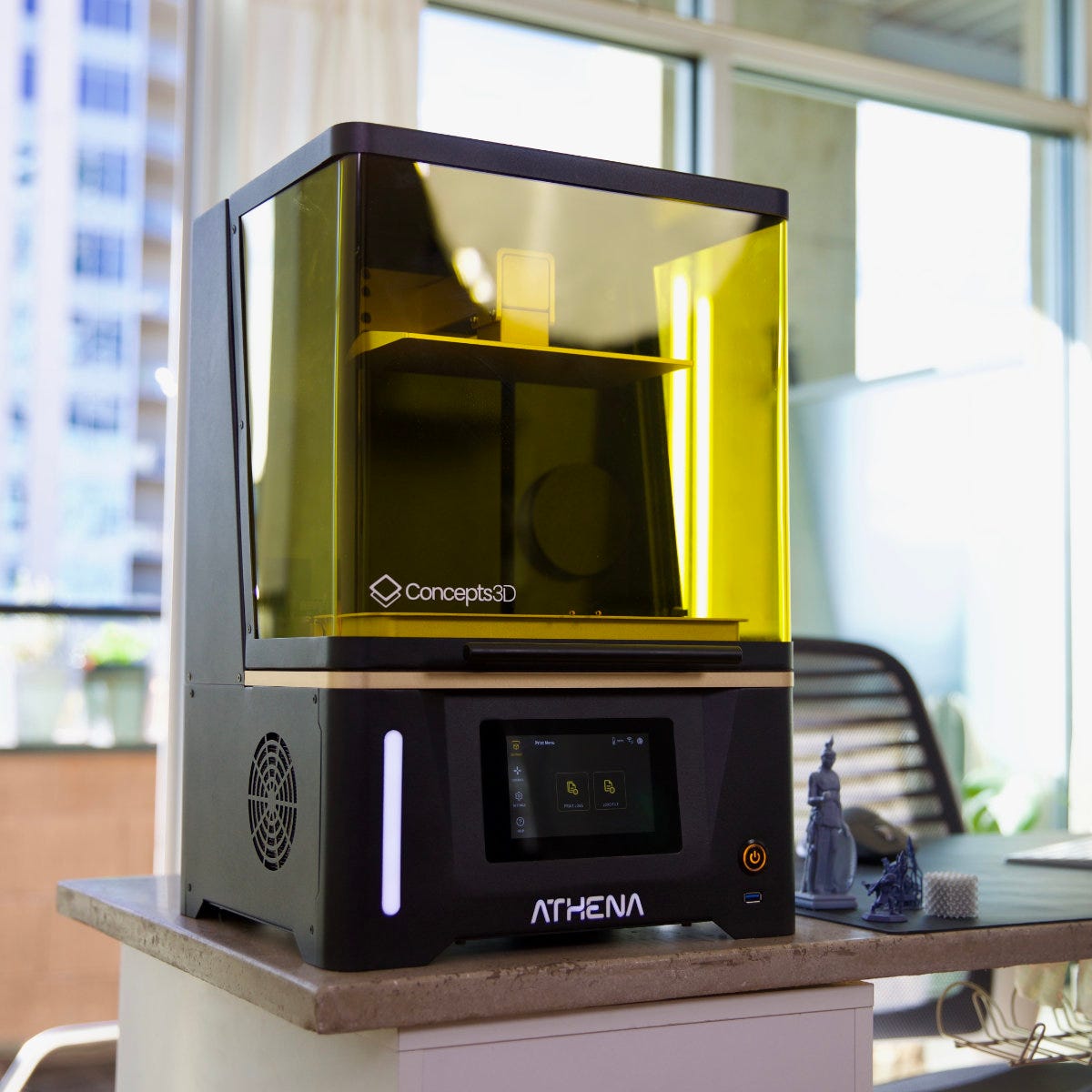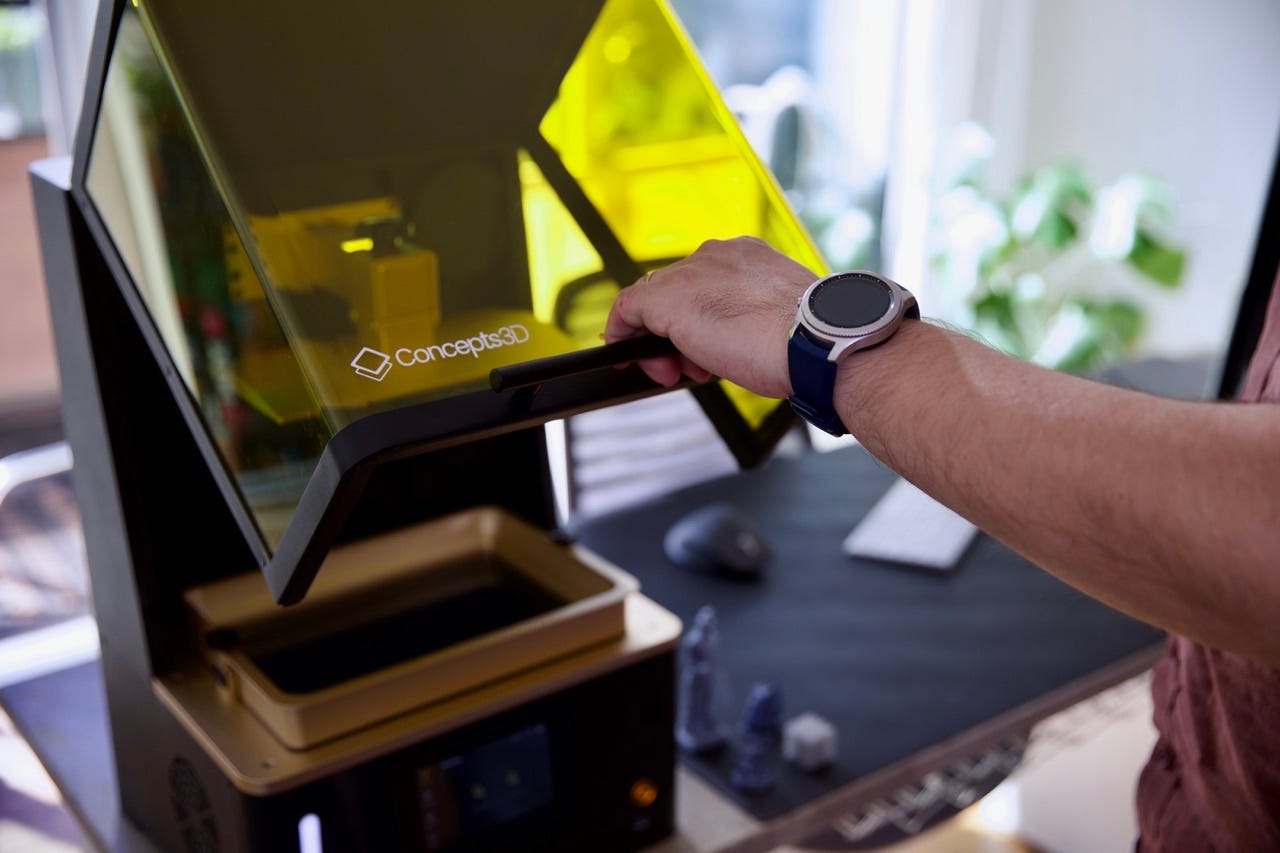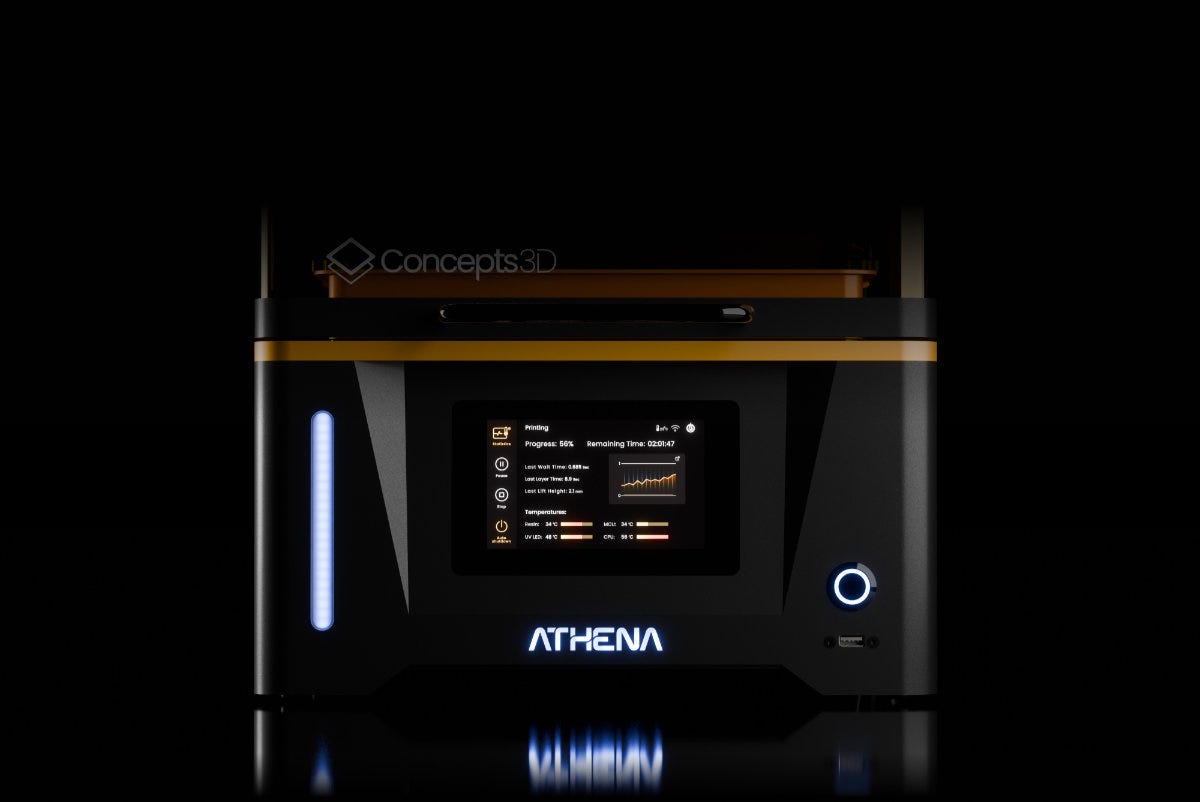Atomic Layer of the Day:
Today, we officially launch a new feature in our newsletter: unique news and product updates from companies featured in The 3D Printing World Guide.
As you know, today marked the release of the Canadian Edition, and among the highlighted companies is Concepts 3D Systems from Kelowna, British Columbia. Led by Nico Martin, the company is developing its proprietary resin 3D printers under the Athena series. Here’s a closer look at them…
The Athena II is the company’s new 3D printer, which debuted at last year’s Formnext. It is an evolution of the earlier Athena I, offering significantly enhanced technological capabilities. With a 16K LCD display, advanced automation systems, and improved safety features, the Athena II caters to both consumer and professional users across various industries.
Concepts 3D Systems Inc. was officially founded by Nico Martin in 2022, but its origins trace back to 2012. Nico was one of the pioneers of resin-based 3D printers utilizing monochromatic LCD screens. Over more than a decade, he designed over 30 different printer models, ranging from industrial systems to compact consumer units.
In 2020, Pascal Wistinghausen, an expert in electronic systems, joined Nico. Together, they developed an open-source platform for resin printers, laying the foundation for the Athena series. The company’s first success came with the Athena I, which debuted on Kickstarter in May 2023, raising a total of CA$ 220,141 (hitting its funding goal in under 30 minutes!).
The Athena II features a 16K LCD display with a resolution of 14x19 microns, delivering exceptionally detailed prints. Its build volume measures 212 mm x 118 mm x 235 mm.
The Smart Dynamic Control system, leveraging advanced sensors, automatically monitors and adjusts key printing parameters like lift speed and exposure time. Users also benefit from error detection features, such as failed prints or completed processes, minimizing downtime risks.
Safety is another standout feature. The Aegis Air Filter system includes dual VOC sensors that monitor and remove harmful fumes generated during printing. The filters, specifically designed for resin printing, effectively eliminate volatile organic compounds and notify users when replacements are needed. Additionally, a large exhaust port enables external air venting from the printing chamber.
In terms of software, the Athena II runs on NanoDLP Linux OS, optimized for precise resin printing. The printer also supports Klipper, known for its speed and reliability in machine control. With the built-in NanoSupport slicer and a 5-inch IPS touchscreen, users can manage the printing process without needing external computers. The printer offers versatile connectivity options, including Wi-Fi, Ethernet, and Bluetooth, enhancing its flexibility.
The Athena II is available for pre-order starting January 2025, with the first units expected to ship in March or April of the same year.
Atomic Layer from the Past:
01-21-2022: Eplus3D introduced a large-format metal 3D printer capable of producing parts over one meter in size.
News & Gossip:
Fabulous’ PA11 DETECT powder has been qualified for use on Formlabs’ Fuse1+ 3D printer. The FDA-approved, biosourced material meets EU food contact standards, making it suitable for food and pharmaceutical applications. This milestone, achieved after three years of collaboration, marks Fabulous as a leading third-party material supplier for Formlabs’ open SLS platform.
OrthoSolutions has acquired Meshworks, a UK leader in 3D-printed custom orthopedic implants. Meshworks specializes in bespoke implants for foot and ankle care.
The tension around Bambu Lab and the "firmware-gate" continues to grow. This time, the source of the strain is the company itself, which is reportedly handling the crisis poorly, allegedly altering historical content on its website and seeking to remove archived versions from third-party sites. For now, I'm just observing. I still believe the issue will naturally die within a few weeks, but if the Bambu Lab marketing team doesn't get a grip, things could spiral out of control. Similar situations have happened before, albeit on a smaller, more local scale.






